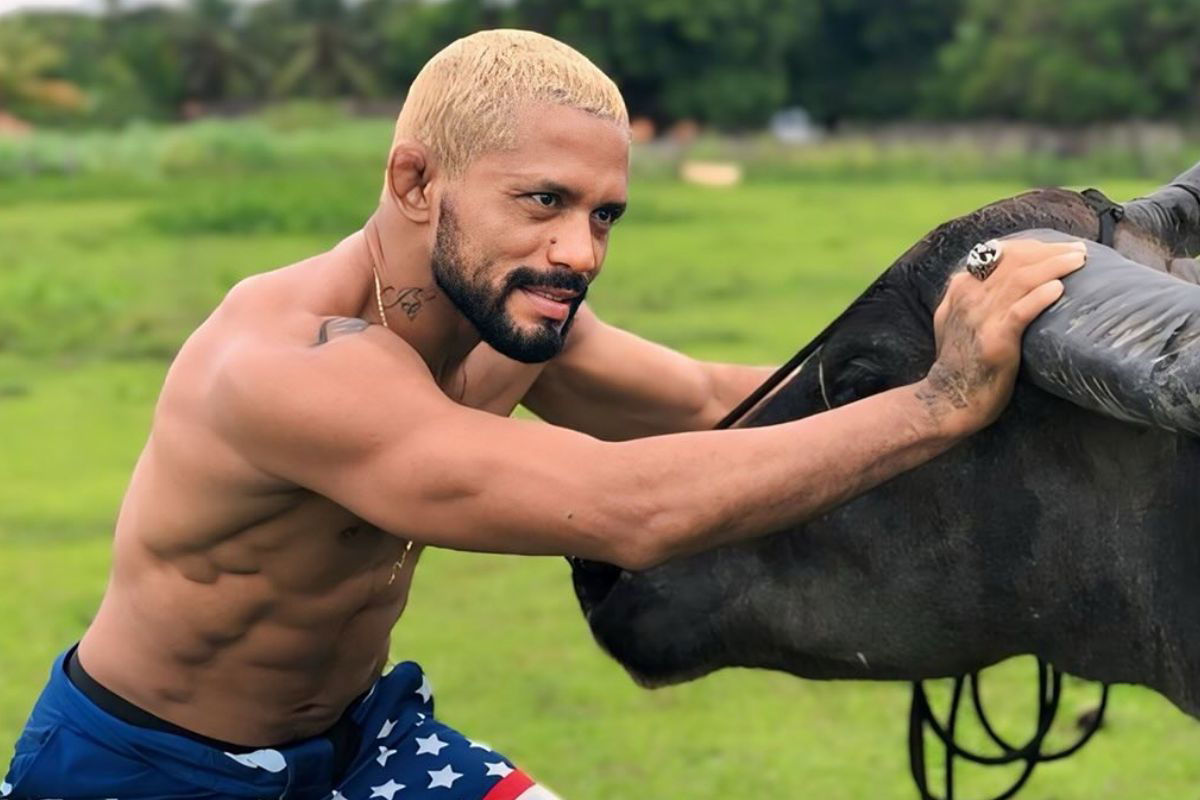
Imago
Deiveson Figueiredo

Imago
Deiveson Figueiredo
Every fighter has a backstory, but few are as textured as Deiveson Figueiredo’s. Before the UFC belts, the walkouts, and the roaring crowds, there was the Amazon. More specifically, the small city of Soure, tucked deep in the northern Brazilian state of Pará. There, Figueiredo’s journey began not with gloves or mats, but with buffaloes, dirt roads, and a dream that felt oceans away.
Watch What’s Trending Now!
So, how did a boy raised on the rugged lands of Marajó Island end up as one of the most feared men in the Octagon? What kind of childhood shapes a man into the ‘God of War’? Let’s take a closer look at his roots—and the hard-earned climb that brought him from a farm to the fight game.
Where is Deiveson Figueiredo from? Who are his parents?
Deiveson Figueiredo hails from Soure, a remote city carved into the island of Marajó near the mouth of the Amazon River. His father, a humble buffalo herder, was no stranger to strength—he practiced luta marajoara, a traditional local wrestling style. It wasn’t just sport; it was survival. A way of life passed from father to son.
Figueiredo’s early days were far from glamorous. “I wasn’t born with a silver spoon in my mouth,” he once said.
And he meant it. Before chasing titles, he was chasing cattle through muddy fields. By the age of thirteen, he was already done with that chapter, ready to write a new one. He moved to Belém, a bigger city, where he picked up capoeira—a rhythmic Brazilian martial art blending fight, dance, and music. It was there that his transformation began.
View this post on Instagram
He also has a younger sister and a brother named Francisco Figueiredo. His brother also shares the same passion for mixed martial arts and competed in the flyweight division in the UFC once. However, the younger sibling found himself getting released from the promotion back in 2022 after a submission loss to Amir Albazi at UFC 278.
Which religion does Deiveson Figueiredo follow?
While Figueiredo has shared many facets of his life—his family, his upbringing, his career—he has kept his spiritual beliefs largely private. There’s little public information about his religion. Perhaps, like many fighters, he finds his sanctuary in the gym and his faith in the grind. It’s hard to tell.
From bricklayer to hairdresser, Deiveson Figueiredo’s background
Before the UFC called, life called for hustle. Deiveson Figueiredo took whatever job came his way. He laid bricks, styled hair, and zipped through Belem’s traffic as a motorcycle taxi driver. He did it all, often juggling multiple gigs just to keep things afloat. Every paycheck was a stepping stone, every shift another jab at poverty.
But it wasn’t all just grit—there was flavor, too. Figueiredo found joy as a sushi chef. “It was my first job when I moved here. But once learned, never forgotten. I had to learn it. For about five months I was making sushi,” he revealed on a past episode of the UFC’s Countdown show.
He still visits that same restaurant, cooking up rolls for his wife, daughter, and coaches. From slicing fish to slicing through opponents, the precision stayed the same. His path was anything but conventional, but every twist added seasoning to the warrior he is today.
Now, the former two-time flyweight champion is gearing up to take on Cory Sandhagen at the main event of UFC on ESPN 67. The Brazilian is coming off a tough decision against Petr Yan in his last fight. But as his journey shows us, hurdles only make ‘Deus Da Guerra’ come back stronger!

